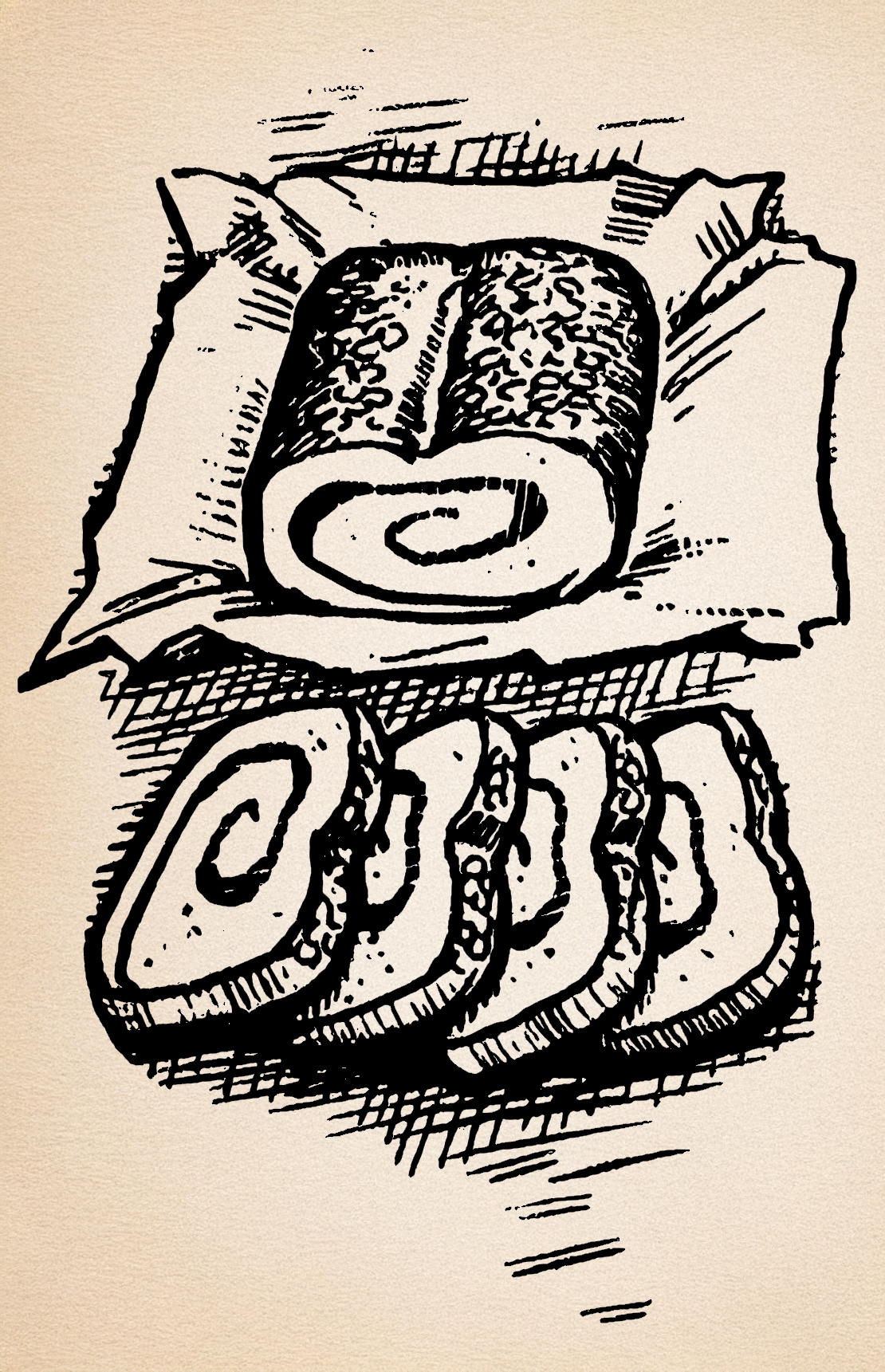It's no accident that we've skipped most of the "meals" associated with elves in Heroes' Feast, but we finally came around to make one: bacon and asparagus. The bacon surprised us because we don't associate meat with elves.

It's also a meal you can feasibly make for your players with a very short baking time (15 minutes or longer if you prefer your bacon crispier).

Still, there is enough evidence throughout Tolkien's works to indicate that meat was present when elves served a meal or when they ate at a table, and the fact it wasn't mentioned that an elf skipped the meat portion of the meal argues that they were not vegetarian.

Your Turn: Do elves eat meat in your fantasy campaign?
Not Just Vegetables
Heroes' Feast says a lot about elven cuisine by what it doesn't include. Of the elven recipes in Heroes' Feast, two involve seafood (shrimp and Dragon Salmon), one involves eggs, and only one involves meat: Greenspear Bundles in Bacon. Why was it included? Because it's actually made by half-elves:This is the first meal we served with guests and they found it surprisingly delicious. It's the sort of meal that's different enough to introduce as an appetizer but flavorful enough that it gets eaten quickly. I'm not fond of asparagus or bacon, but the combination is delicious.Greenspears, also referred to as asparagus or "sparrow grass" by humans, is a perennial flower plant that has ascended to staple-status in many elven diets. While elves consume greenspear raw, seasoned, roasted, or steamed with herbs, their half-elf brethren--liberated from certain culinary taboos--have developed an additional preparation technique. In an irreverent touch, but one that flavorfully complements the greenspear, half-elves add salted and cured pork into the mix, in deference to their half-human taste buds. Regarding bacon, the thicker cut is always the better!"
It's also a meal you can feasibly make for your players with a very short baking time (15 minutes or longer if you prefer your bacon crispier).
Tolkien's Elves
The association of elves with vegetarianism is likely due to their affinity with nature, established in J.R.R. Tolkien's Lord of the Rings. There's much discussion of elven lembas, a kind of travel ration, but little else. The association with elves avoiding meat likely stems from the inspiration for wood elves, the Green Elves of Ossiriand, who decided that men as "hewers of trees and hunters of beasts" were no friends of theirs.Still, there is enough evidence throughout Tolkien's works to indicate that meat was present when elves served a meal or when they ate at a table, and the fact it wasn't mentioned that an elf skipped the meat portion of the meal argues that they were not vegetarian.
D&D Elves
But what of elves in Dungeons & Dragons? Here's what Heroes' Feast has to say on the subject:Ironically, D&D wood elves seem to be different from their Tolkien-inspired brethren:Because they place such a strong value on life, a high percentage of elves stringently exercise food restrictions, and a great many would fall into the category of vegetarian, vegan, or pescatarian--little that bleeds ends up on elven plates.
So it seems that at least some elves eat meat after all. But you wouldn't know it from the recipes in Heroes' Feast.High elves tend to align their diets most closely to their values, and prefer fruits, vegetables, and grains to meat and poultry. By contrast, wood elves are often wanderers and adventures and, consequently, more disposed to hunting and foraging.
Your Turn: Do elves eat meat in your fantasy campaign?




